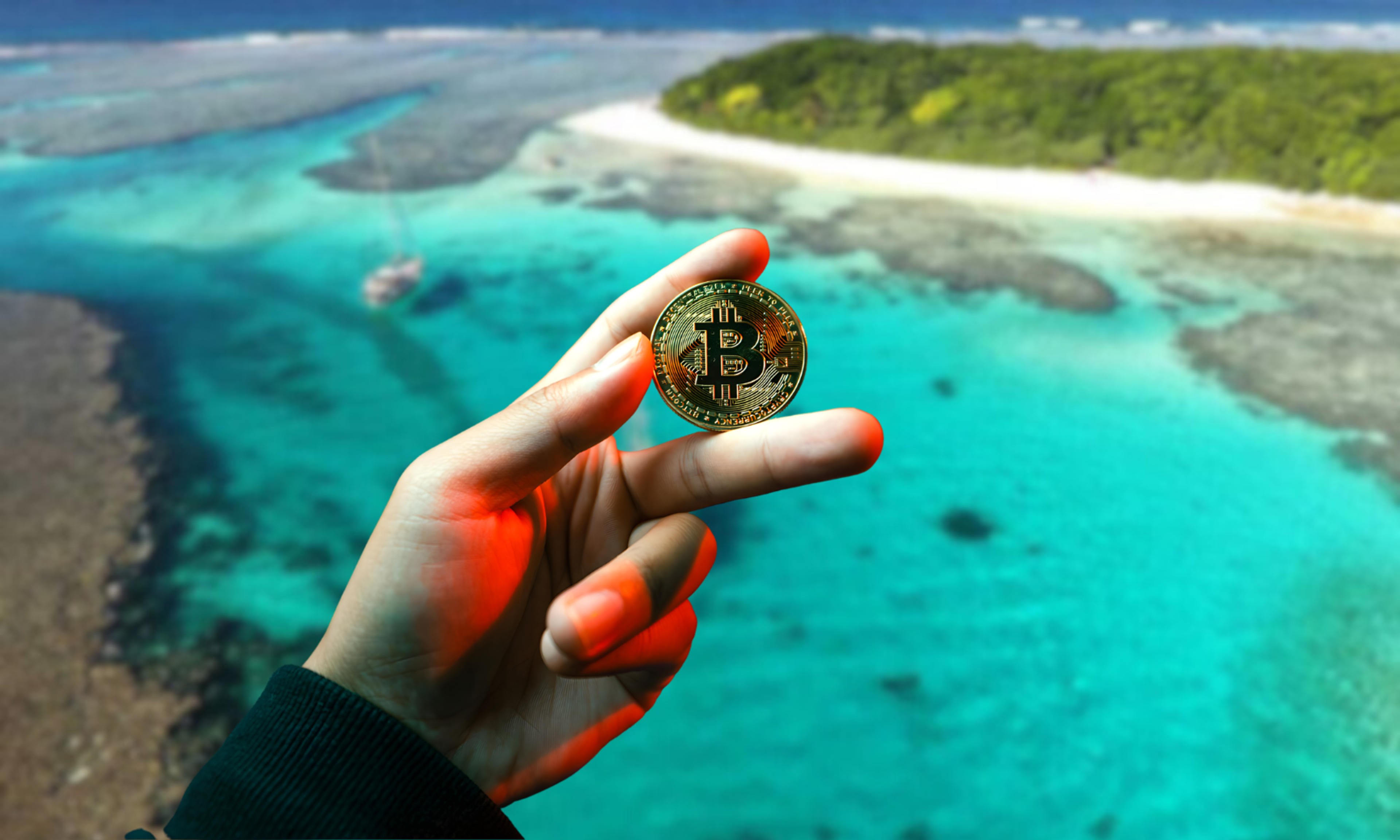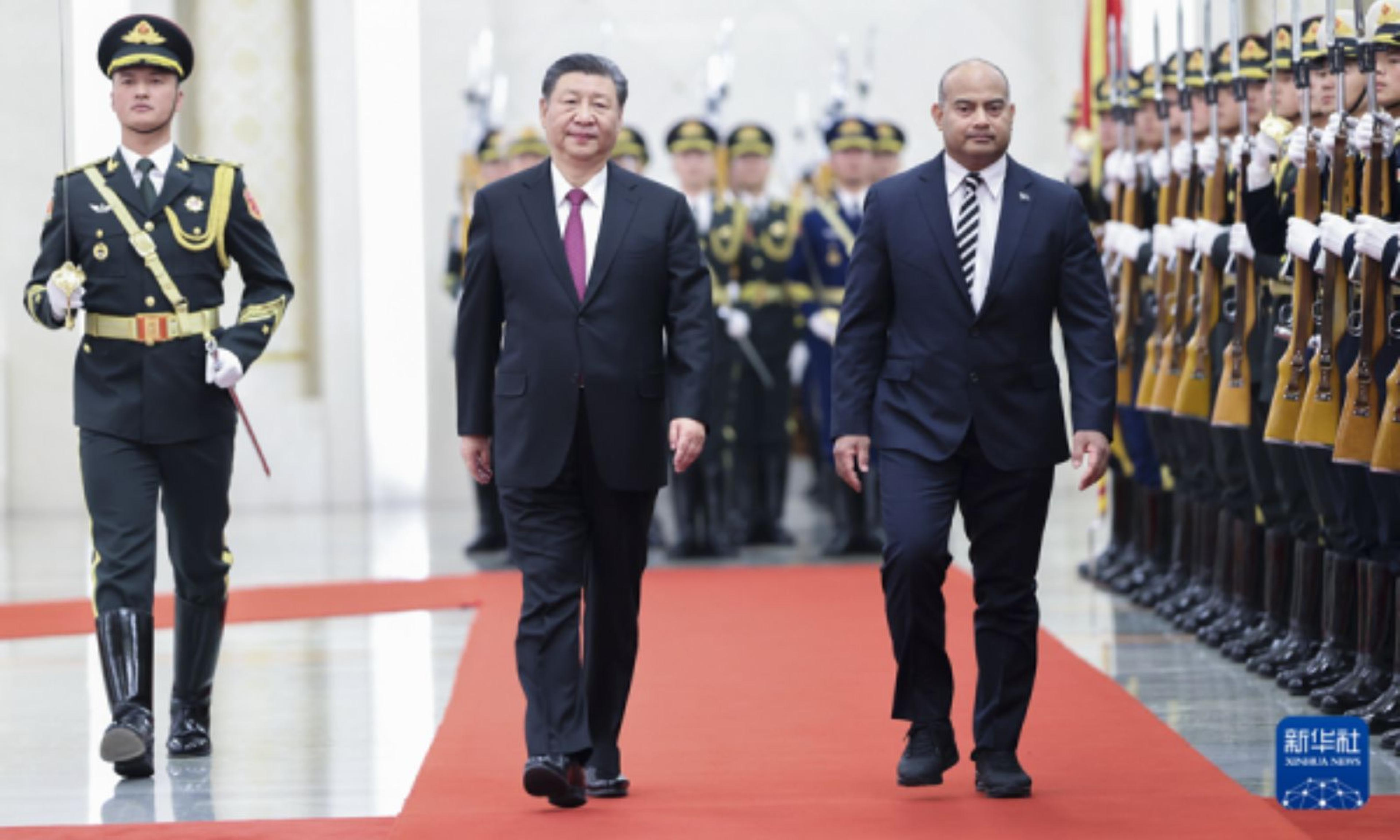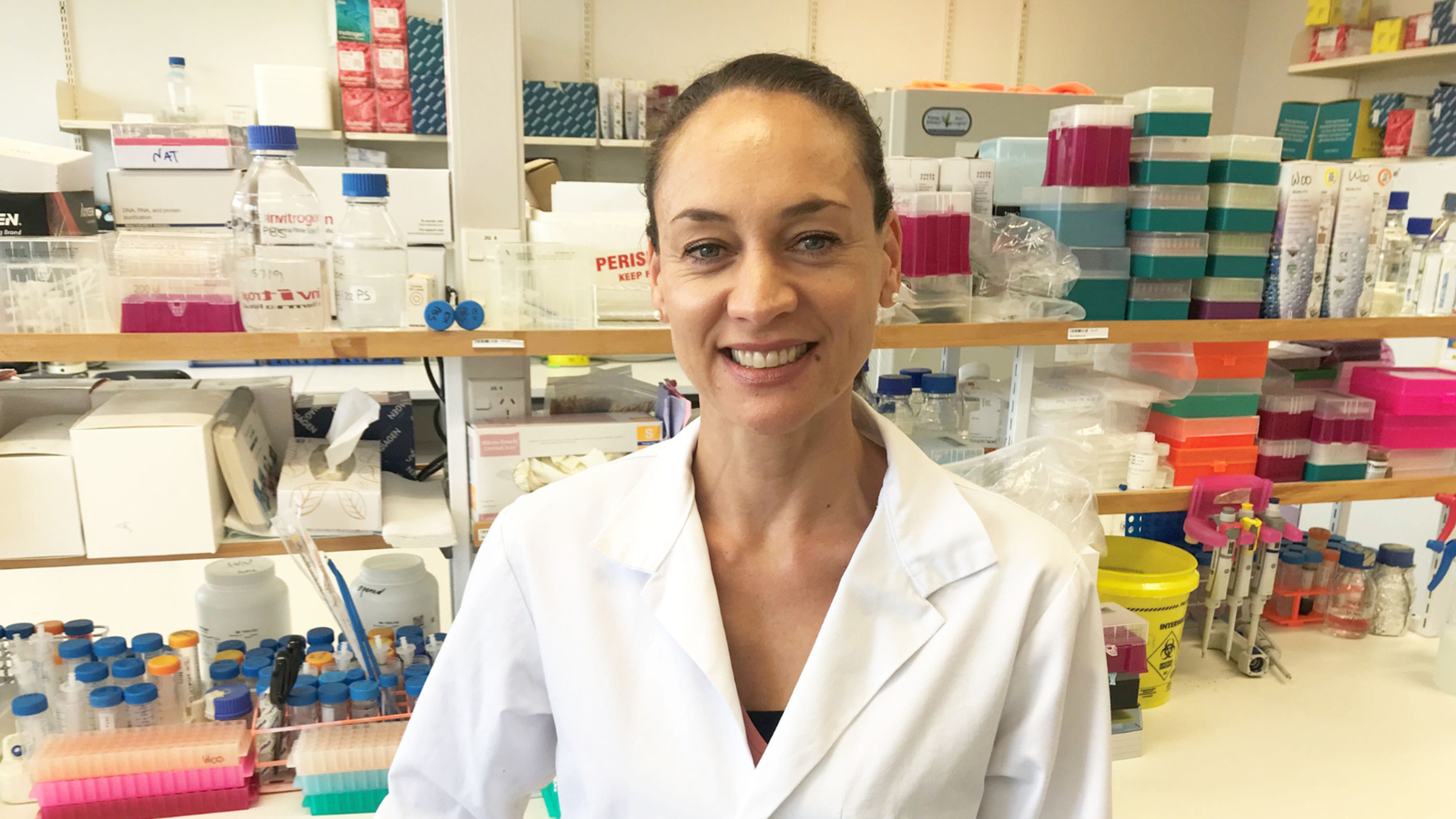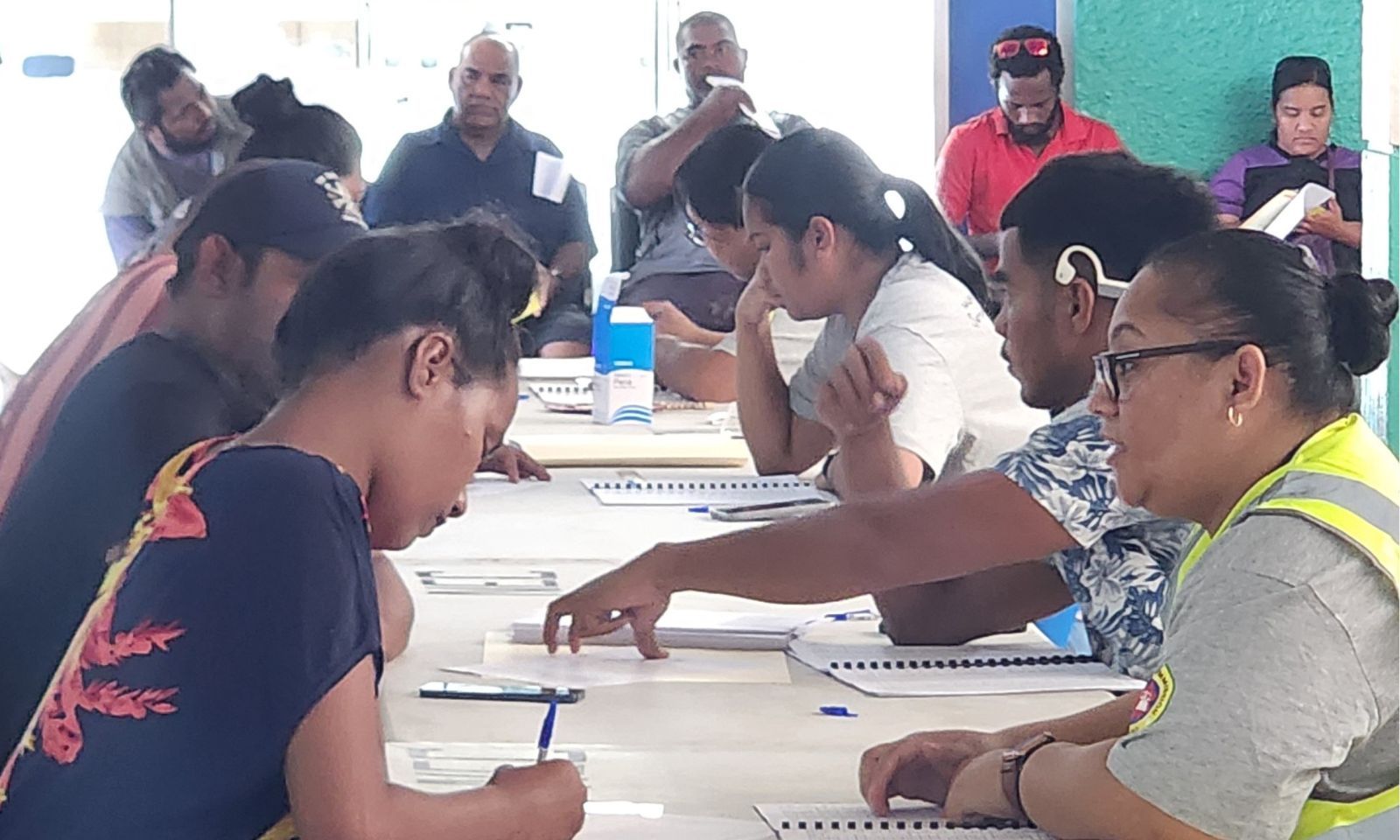

Nauru President David Adeang, right, and Chinese President Xi Jinping at the North Hall of the Great Hall of the People in Beijing in March 2024.
Photo/Embassy of the People's Republic of China, Indonesia
Nauru President re-elected amid China controversy and plans for deep sea mining
David Adeang has been firm on the mutual benefits of the Nauru-China relationship, advocating that deep sea mining can support the Pacific island nation's sustainable development.

Pacific digital-finance push continues despite global crypto volatility



Just a few months after explaining his government's decision to rekindle diplomatic ties with China, Nauru President David Adeang has been re-elected unopposed in the country's recent election.
Nauru's parliament met on Tuesday to discuss the results of last week's general election.
Adeang, aged 55, secured a victory in the Ubenide constituency with 837 votes out of the total cast on 11 October. The election saw 19 members of parliament elected.
Nauru is a member of Micronesia and is located just over 4000km north of New Zealand. It has a population of about 12,000, according to the country's Census 2024.
During the parliamentary session on Tuesday, Marcus Stephen, a former president, was chosen as the Speaker of Parliament and Isabella Dageago was named Deputy Speaker.
This left 18 members to vote for the president, and Adeang will now select Cabinet ministers and deputy ministers from those members.

During last week's presidential elections, Nauruans also voted against a proposal to extend the parliamentary term from three years to four years. Photo/Facebook/Nauru government
Adeang's supports for China
In August, Adeang announced that the decision to re-establish diplomatic relations with China in January 2024 had already proven beneficial.
While on a recent trip to Guangdong Province in South China to trace his ancestral roots, Adeang praised the "positive relationship" between Nauru and China, describing it as one of mutual cooperation.
He recalled a meeting with Chinese President Xi Jinping last year, where they discussed immediate benefits in their relationship.
Adeang is optimistic that in the coming years, key investments in areas like infrastructure, education, healthcare, and renewable energy will help diversify Nauru's economy, with China playing a significant role in these efforts.
Amid criticisms from within Nauru and abroad, Adeang believes that China has shown the world how hard work and innovative strategies can lead to prosperity and improved living conditions.
He also shared his commitment to innovation and success that would benefit all Nauruans.
Stance on deep sea mining
During his address to the United Nations General Assembly (UNGA) last month, Adeang defended Nauru's plan to open its waters to deep sea mining.
He appealed to the International Seabed Authority (ISA) to quickly draft rules that would allow Nauru to gain global approval to let companies explore and mine the island's ocean floor.
Despite the ISA stating since 2021 that no commercial mining is allowed until regulations are finalised, Adeang argued that seabed mining could help provide a source of green energy.
"As both a small island developing state and a sponsoring state for deep seabed mineral exploration, Nauru has invested significantly through our sponsored entity to access minerals essential to powering the world’s transition away from fossil fuels and advancing the common heritage of humankind," he told the 80th Session of the UNGA in New York.
"We have consistently advocated for robust regulations that balance responsible mineral recovery with effective environmental protection."